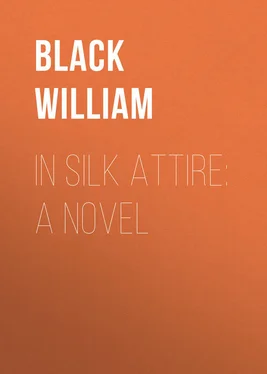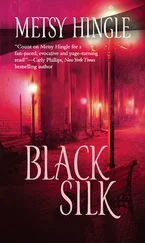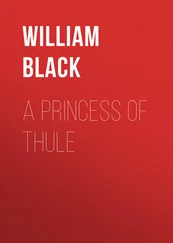William Black - In Silk Attire - A Novel
Здесь есть возможность читать онлайн «William Black - In Silk Attire - A Novel» — ознакомительный отрывок электронной книги совершенно бесплатно, а после прочтения отрывка купить полную версию. В некоторых случаях можно слушать аудио, скачать через торрент в формате fb2 и присутствует краткое содержание. Жанр: foreign_antique, foreign_prose, на английском языке. Описание произведения, (предисловие) а так же отзывы посетителей доступны на портале библиотеки ЛибКат.
- Название:In Silk Attire: A Novel
- Автор:
- Жанр:
- Год:неизвестен
- ISBN:нет данных
- Рейтинг книги:4 / 5. Голосов: 1
-
Избранное:Добавить в избранное
- Отзывы:
-
Ваша оценка:
- 80
- 1
- 2
- 3
- 4
- 5
In Silk Attire: A Novel: краткое содержание, описание и аннотация
Предлагаем к чтению аннотацию, описание, краткое содержание или предисловие (зависит от того, что написал сам автор книги «In Silk Attire: A Novel»). Если вы не нашли необходимую информацию о книге — напишите в комментариях, мы постараемся отыскать её.
In Silk Attire: A Novel — читать онлайн ознакомительный отрывок
Ниже представлен текст книги, разбитый по страницам. Система сохранения места последней прочитанной страницы, позволяет с удобством читать онлайн бесплатно книгу «In Silk Attire: A Novel», без необходимости каждый раз заново искать на чём Вы остановились. Поставьте закладку, и сможете в любой момент перейти на страницу, на которой закончили чтение.
Интервал:
Закладка:
"Dove," whispered Mr. Anerley, "go and ask mamma if I mayn't have my song to-day?"
"But, papa, it's Sunday."
"Tell mamma to take all the children into the meadow, with some bread for the pony. They won't hear it, then."
This was accordingly done; and then Dove, opening the French window of the drawing-room, so that the music might pass out to the gentlemen underneath the cedar, sang, very prettily indeed, Mr. Anerley's particular song – "Where the bee sucks." Her voice was not a powerful one, but it was very tender and expressive; and there was a quaint softness in that purring habit of hers which made her sing, "Meghily, meghily shall I sleep now."
And when she went outside to Mr. Anerley, and knelt down beside him, to ask him if he was satisfied, he put his arm round her waist and said, with a smile,
"Meghily, meghily shall I sleep now, my darling. I should have been miserable all the afternoon if I had not heard my own song. I believe I wrote it, Dove."
"You mustn't sleep now, papa," she said, blushing a little over her bad pronunciation, "for you said we were going to walk over to the Place this afternoon."
"So I did; and we will start presently."
CHAPTER VII.
BALNACLUITH PLACE
"It often surprises me," said Mr. Anerley, as the little party made its way across the common of St. Mary-Kirby in the warm evening glow, "that Hubbard cares to keep up acquaintance with us. We always dislike people who have known us in ill-fortune, or penury, or great depression. I even hate the flavour of cigars that I have smoked when recovering from sickness; I must have others when I get quite well again. Now, Hubbard, with his deer-park, and harriers, and thirty thousand a year, ought to be disgusted with people who knew him as a tea-broker."
"Don't be so ill-natured about Mr. Hubbard, dear," said his wife, with a smile. "I'm sure he is a big, soft, stupid, well-meaning sort of man."
Mr. Anerley was not quite so certain about the softness and good intentions of the Count; but he charitably forbore to speak. Dove and Will, who had stood for a few seconds on the bridge, to watch the two swans come sailing towards them in expectation of crumbs – cleaving the burnished gold of the mill-head into long purple lines – now came up; and they walked away from the still little village, along the green lanes, until they drew near the Place.
It was a great, sombre, fine old building, which had figured in history under another name – a large building of gloomy red brick, with innumerable mullioned windows, and peaks, and stone griffins – a building that had here and there grown grey and orange with the lichens and rain and wind of many years. It stood upon a high terrace on the side of a hill sloping down to the river, which ran along the valley to St. Mary-Kirby; and at this point the stream – a line of flashing gold winding through the soft green – divided the terrace and lawn of the house from the great park opposite, with its magnificent elms and its small close-lying herd of deer. Round about the Place, too, were some fine trees, on a particular cluster of which a colony of rooks had established themselves at some bygone time. Altogether a noble and handsome old building was this Balnacluith Place, for which the Graf von Schönstein had – not without a purpose – expended a large sum of money, on his accession to fortune. Alas! the influence of the Place had fled the moment he bought it. The brilliant gentlemen and lovely ladies whom the Count had pictured to himself dining in the great hall, or walking in the broad park, never appeared. The grand old house had lost its mesmeric power; and no longer drew down from London those brilliant parties of wits, and beaux, and belles who once – as the Count had informed himself – held their merry revels there. He had sparkling wines at his command; lights he could have in abundance; when he chose, the dining-hall was brilliant with plate, and flowers, and fruit – but the ladies and gentlemen whom he had mentally invited stayed away. And he was not the man to go out into the highways and byways, and gather in beggars to his feast. He had aimed at a particular kind of guests: they had not come; but there was yet hope of their coming.
When the Anerleys drew near they perceived the figure of a man walking solitarily up and down the stone terrace in front of the house. His only companions were the couchant lions at each end of the terrace, which had kept guard there, over the few steps, for nearly a couple of centuries.
"It is Hubbard himself," said Mr. Anerley.
"He looks like the ghost of some dead owner of the house, come back to take his accustomed stroll," said Will.
"At all events, he is smoking," said Dove.
When the Count perceived his visitors, he threw away his cigar, and came down to meet them, saluting them with florid and formal courtesy.
"No need to ask how you are, Miss Anerley – charming as ever. Persuaded our friend Will to give up his wandering life, eh?"
This was the Count's great joke: it had never been known to fail – at least in rendering Dove very uncomfortable.
"What a fine evening! Look how beautiful the trees are down there!" he continued, allowing his eye to roam over the prospect before him in innocent pride – looking, indeed, as if he thought that God had prepared the sunset simply to light up Count Schönstein's park.
"It is a fine park; and a beautiful evening, too," said Mr. Anerley. "It is a pity that most beautiful things make one sad."
"That is because we don't possess them," said the Count, laughing; he was of a practical turn of mind.
The Count turned to the ladies, and – as was his universal custom when he wished to be polite – he insisted on their going inside and having a glass of wine.
"Look here, Anerley," he said, when both of them declined, "you must come and try some port I got down last night – bought it at the sale of Major Benson's cellar on Thursday – 10*l.* a dozen, and cheap at the money."
"If it was sent home last night, I'd rather not," said Mr. Anerley, with a smile.
"I didn't mean that particular wine," replied the Count, unblushingly. "Or will you all stay and dine with me? Do; I dine at eight."
This was what is bluntly called a lie; the Count – except when circumstances compelled him – never forsook his old dinner-hour of five. He had, in fact, only begun his second cigar after dinner when the Anerley's arrived. But the Count probably fancied that a mere courtesy-lie wasn't much, and trusted to his visitors declining the invitation, which they did.
"I would rather go down and see the deer," said Dove. "Didn't you say you had some roe-deer amongst them?"
"Those I had brought from Schönstein?" said the Count, rather pompously. "They all died, as Hermann said they would. But it was an experiment, you know. I must get Hermann, if we're going into the park; the deer won't come to me."
He went into the house for a few moments, and reappeared, followed by the keeper, a splendid-looking fellow, with a brown, handsome face, great shoulders, and long legs encased in rough top-boots. This Hermann had been the head-keeper, chief forester, and what not, of Schönstein, when Mr. Hubbard bought the place; and on the principle of the Portuguese navigators, who brought home men and women from the Guinea Coast to prove that they had been there, the Count carried the big Schwarzwalder over to England with him, as a specimen of what he had purchased abroad. Unlike most of his Schwarzwald brethren, Hermann knew not a word of English; Hubbard knew not a word of German; and for many a month after his expatriation the efforts of master and man to understand each other formed a constant comedy at the Place. In one or two cases Mr. Anerley was besought to act as interpreter; and even now nothing delighted the stalwart, good-natured Blackforester so much as a long talk in his native language with any of his master's guests who were complaisant enough to humour him.
Читать дальшеИнтервал:
Закладка:
Похожие книги на «In Silk Attire: A Novel»
Представляем Вашему вниманию похожие книги на «In Silk Attire: A Novel» списком для выбора. Мы отобрали схожую по названию и смыслу литературу в надежде предоставить читателям больше вариантов отыскать новые, интересные, ещё непрочитанные произведения.
Обсуждение, отзывы о книге «In Silk Attire: A Novel» и просто собственные мнения читателей. Оставьте ваши комментарии, напишите, что Вы думаете о произведении, его смысле или главных героях. Укажите что конкретно понравилось, а что нет, и почему Вы так считаете.












